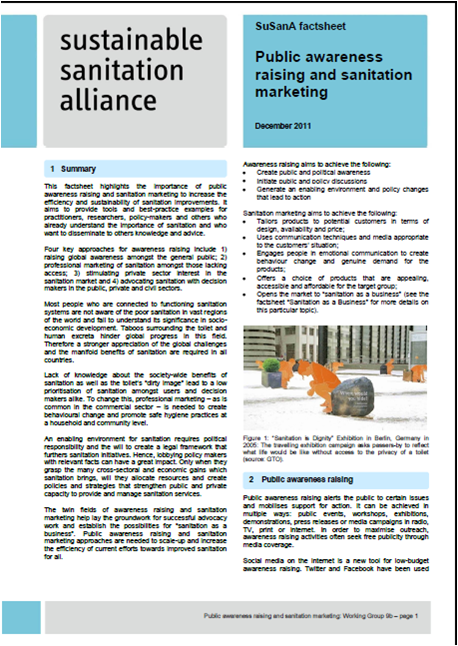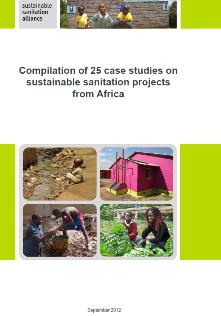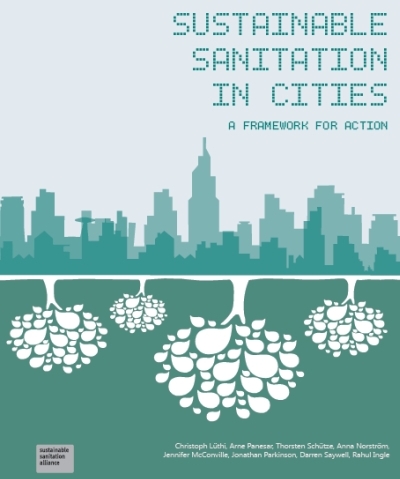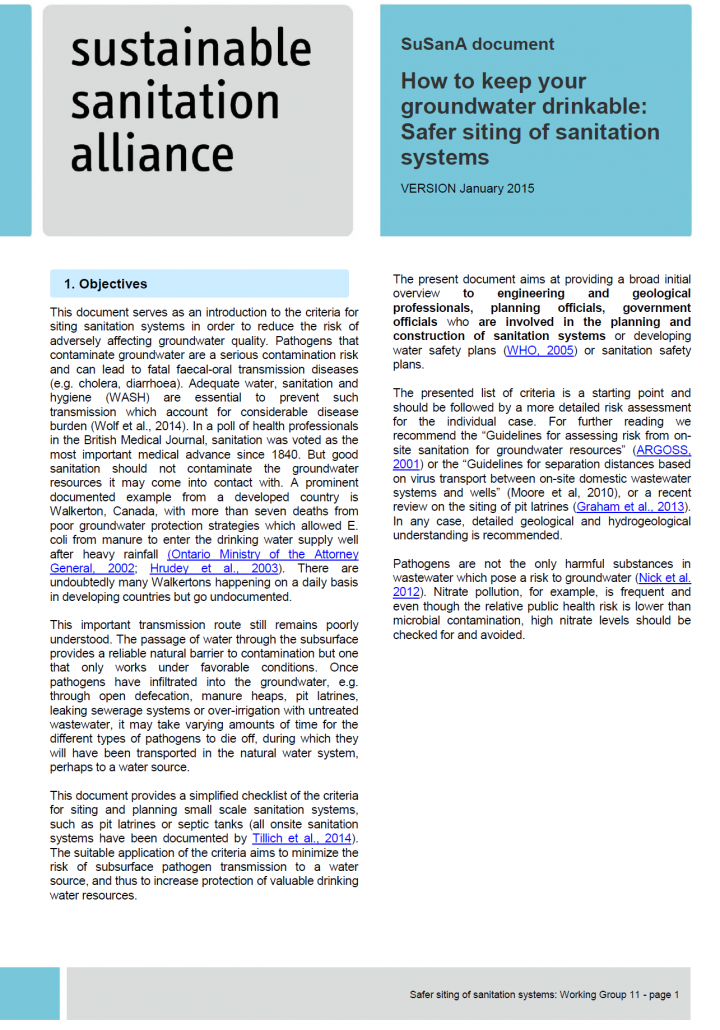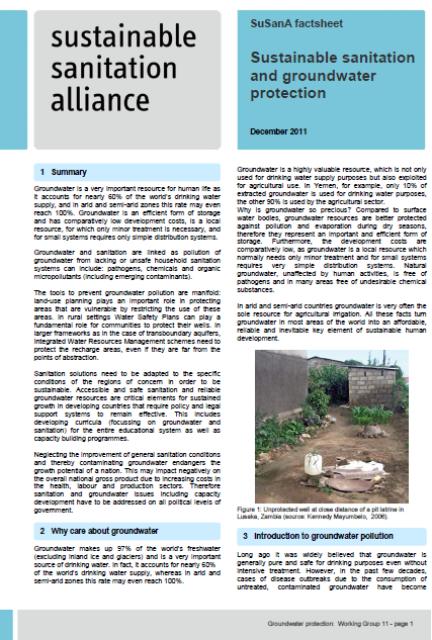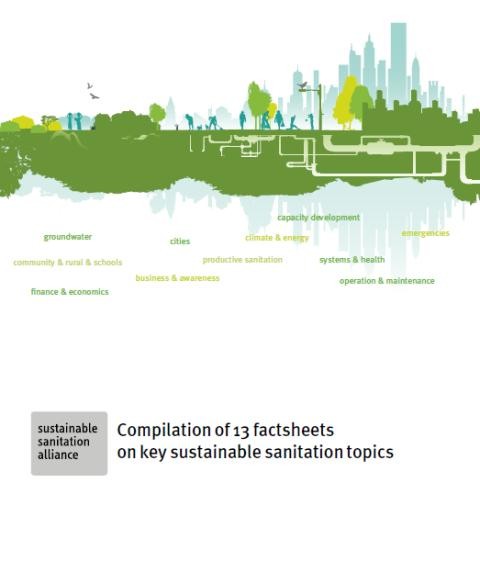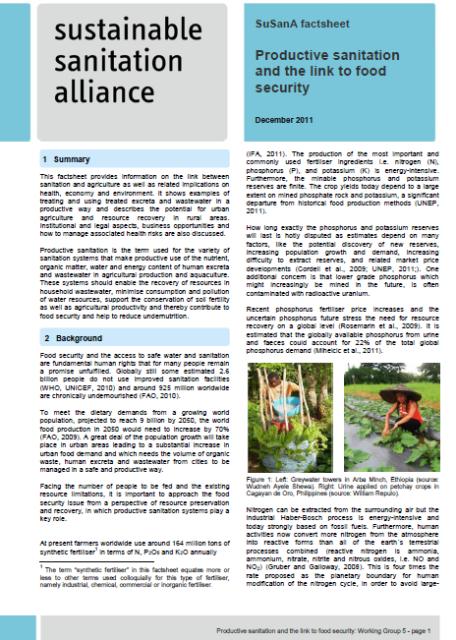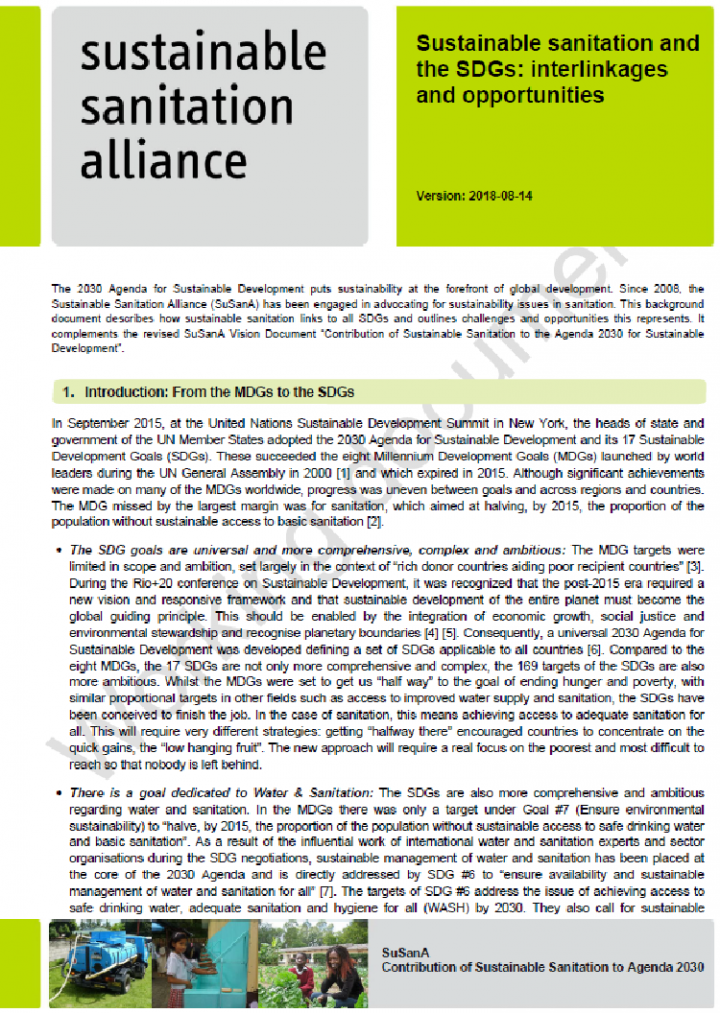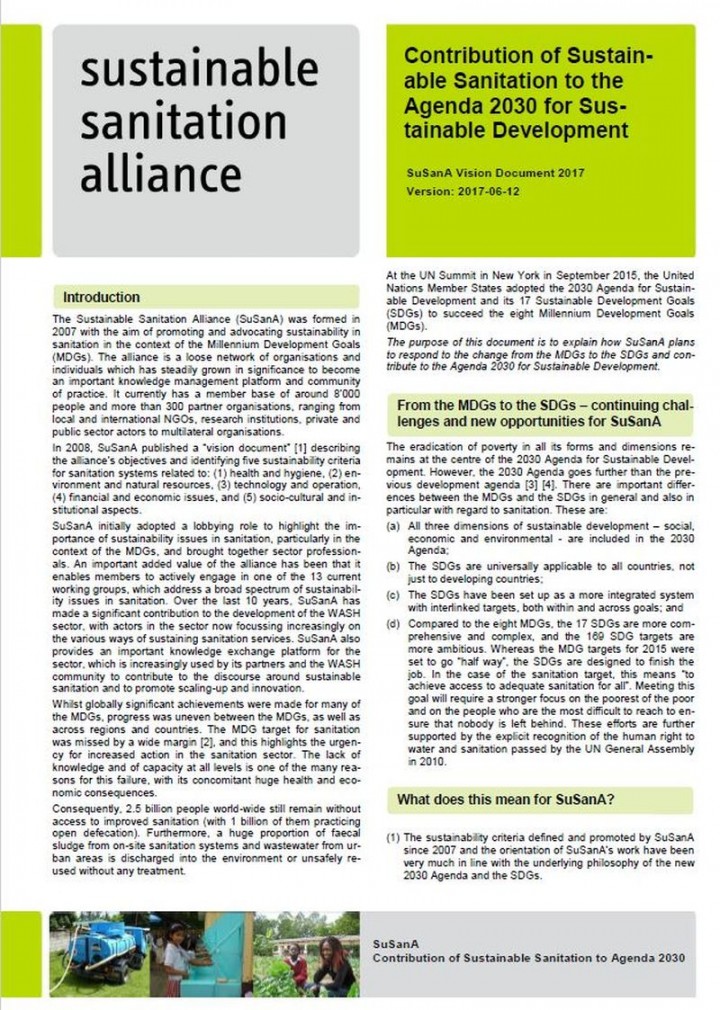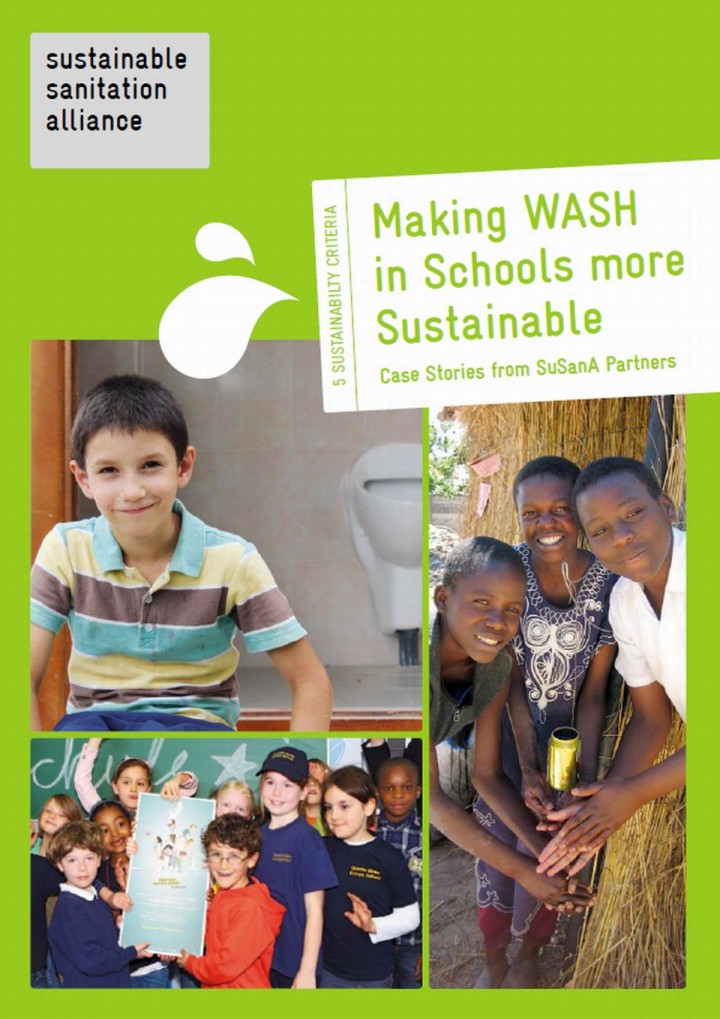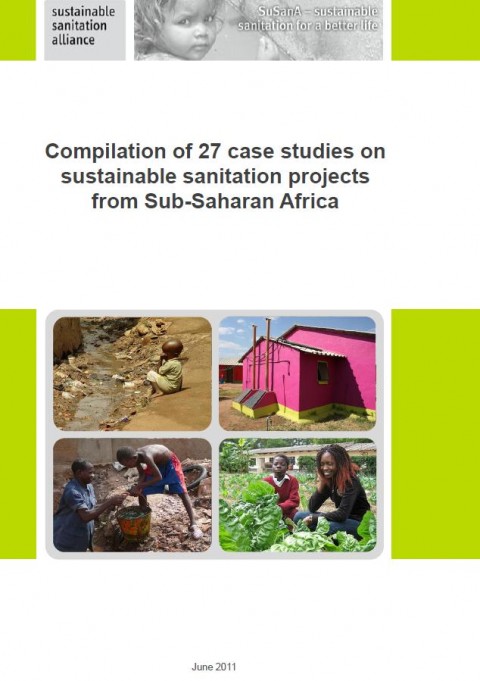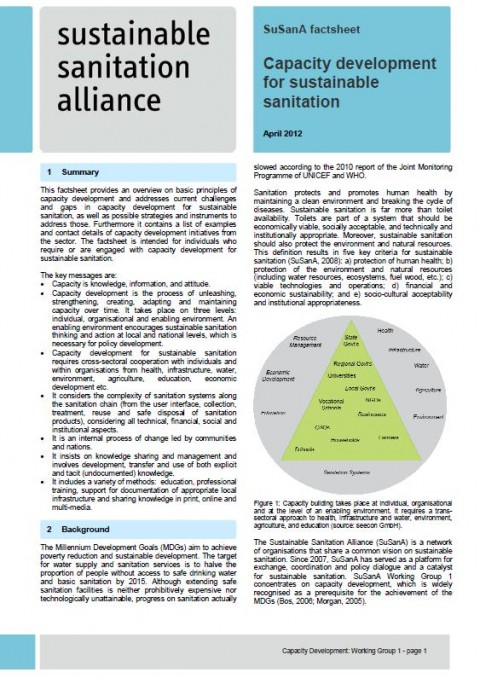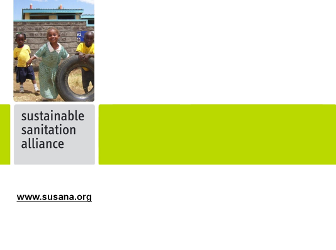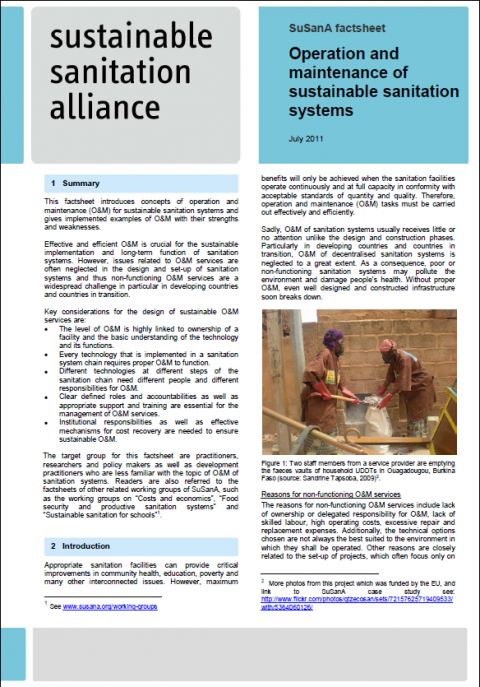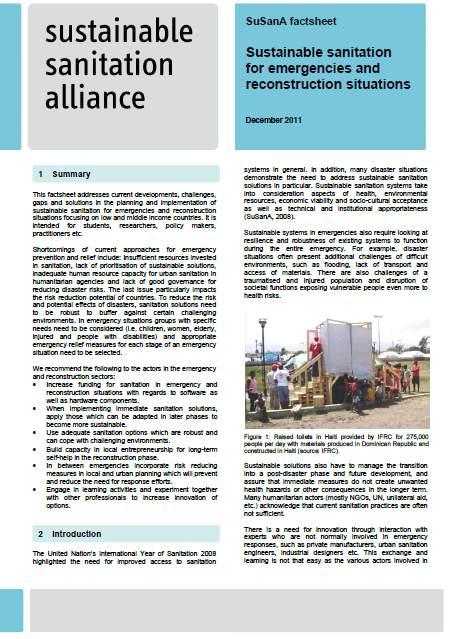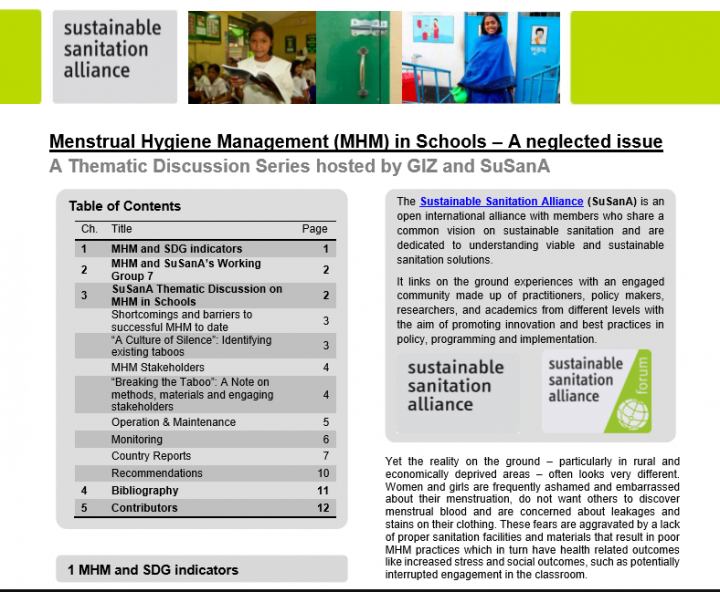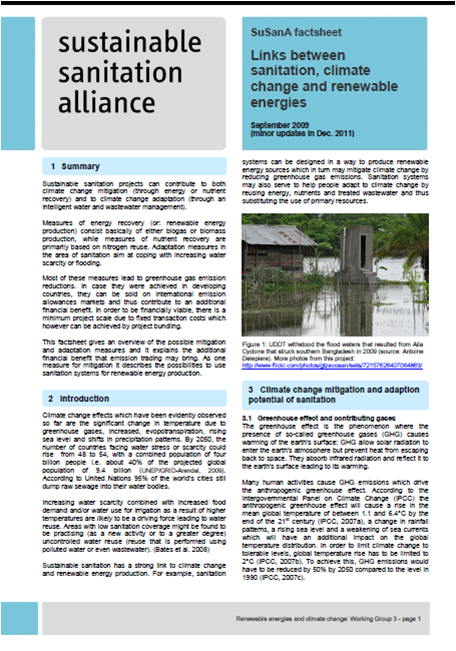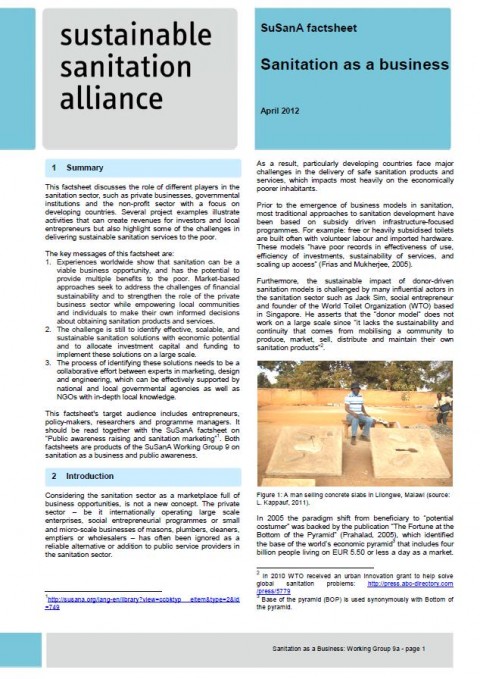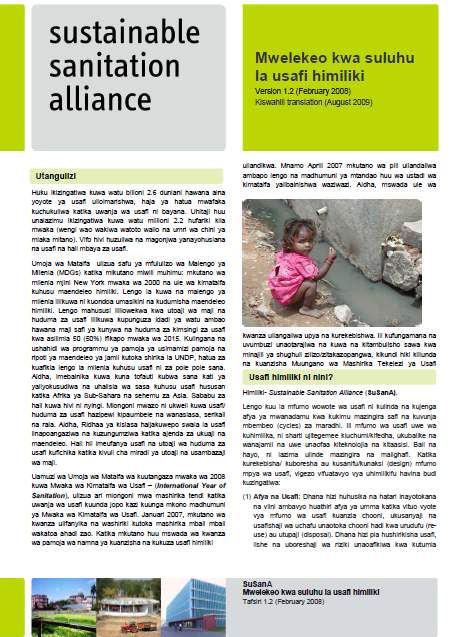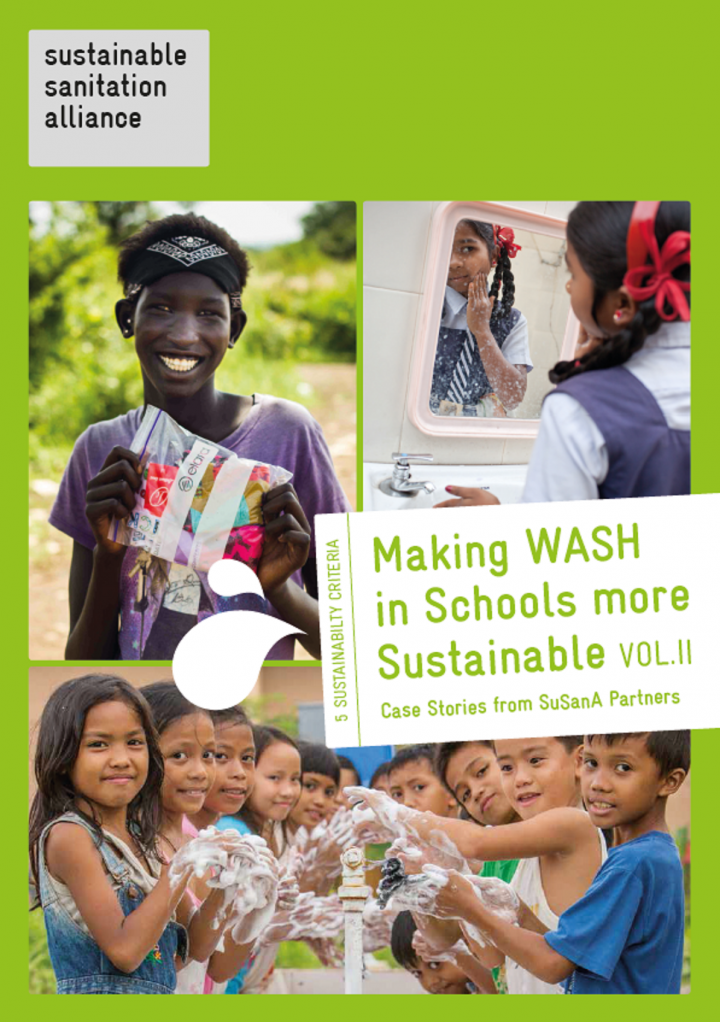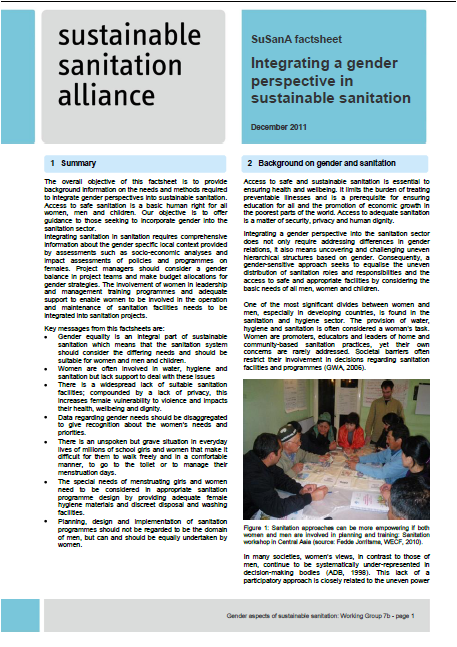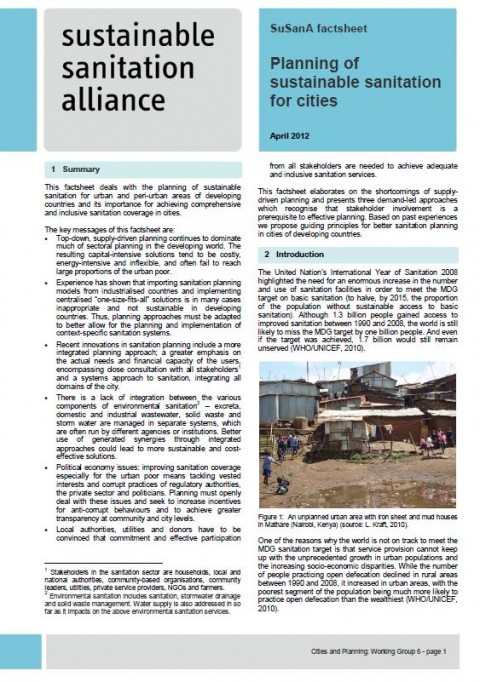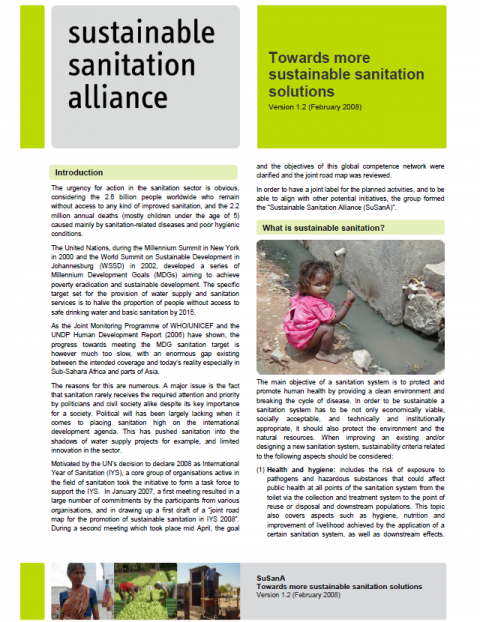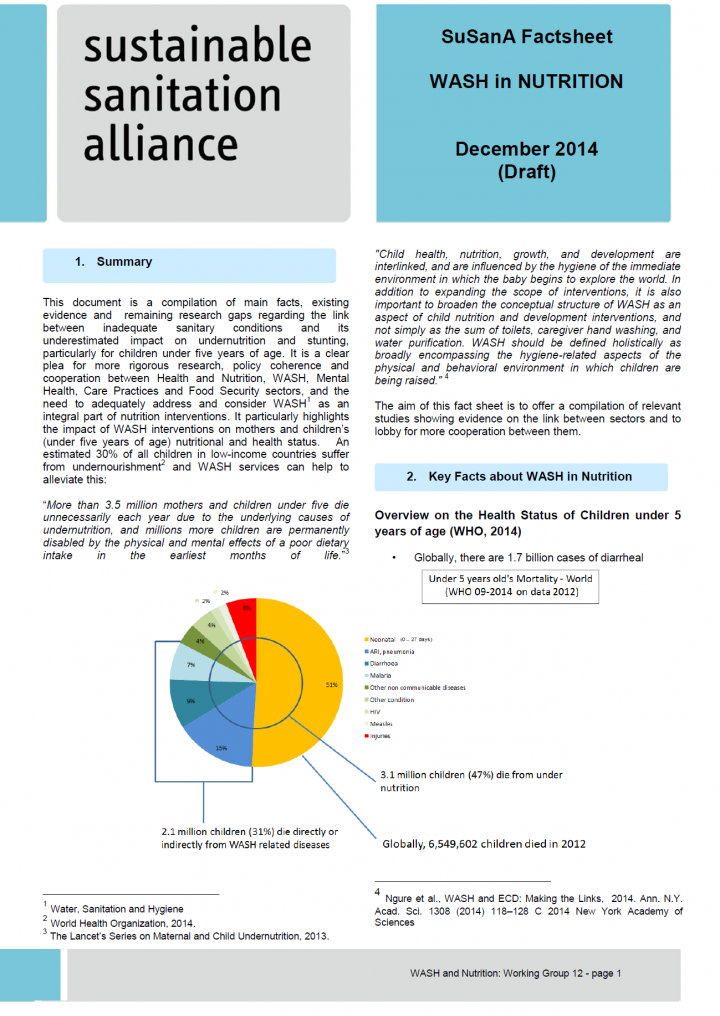Searching for information on Sanitation Workers?
The Sanitation Workers Knowledge + Learning Hub is the best source for all current news, trends, articles and updates on sanitation workers rights around the world.
The overall goal of the SuSanA is to contribute to the achievement of the MDGs by promoting sanitation systems which are taking into consideration all aspects of sustainability. The MDGs and the UN’s “International Year of Sanitation 2008” are highly appreciated by the “Sustainable Sanitation Alliance” as they help push sanitation high up in the political agenda. The main focus of the …
This factsheet provides information on the link between sanitation and agriculture as well as related implications on health, economy and the environment. It presents examples of treating and using treated excreta and wastewater in a productive way and describes the potential for urban
agriculture and resource recovery in rural areas.
Institutional and legal aspects, business opportunities …
The 2030 Agenda for Sustainable Development puts sustainability at the forefront of global development. Since 2008, the Sustainable Sanitation Alliance (SuSanA) has been engaged in advocating for sustainability issues in sanitation. This background document describes how sustainable sanitation links to all SDGs and outlines challenges and opportunities this represents. It complements the revised …
The Sustainable Sanitation Alliance (SuSanA) was formed in 2007 with the aim of promoting and lobbying for sustainability in sanitation in the context of the Millennium Development Goals. Over the last 10 years SuSanA has made a significant contribution to sector development, with sector actors now focussing increasingly on the sustainability of sanitation services in a variety of ways. …
This publication showcases various approaches, both practical and innovative, to provide sustainable WASH solutions in schools around the world. The stories are not limited to the construction of water and sanitation systems but also show how these systems are operated and maintained through active involvement of pupils, teachers, cleaning staff and community members. In some cases, awareness is …
This standard set of powerpoint slides about SuSanA has been developed by the SuSanA secretariat to provide a more detailed overview of SuSanA. It will also help people who are giving presentations about SuSanA to have the latest information on hand and to have a common starting point. It is updated from time to time.
The slides about the SuSanA Discussion Forum are now in a separate library …
Menstrual Hygiene Management (MHM) refers to the way in which women and girls deal with their menstruation. Girls usually menstruate for the first time between the age of 10 and 15. Learning about menstruation is thus vital for secondary school students, but it is not too early to raise awareness in elementary school. Given the number of people affected by MHM in some way or another, it is …
Sustainable sanitation projects can contribute to both climate change mitigation (through energy or nutrient recovery) and to climate change adaptation (through innovative sanitation systems and wastewater management).
Measures of renewable energy production consist basically of either biogas production from waste water or biomass production through the use of waste water to grow short …
This publication is the second volume of "Making WASH in Schools ore Sustainable". Similar to Volume I, it showcases various approaches, both practical and innovative, to provide sustainable WASH solutions in schools around the world. The stories are not limited to the construction of water and sanitation systems but also show how these systems are operated and maintained through active …

